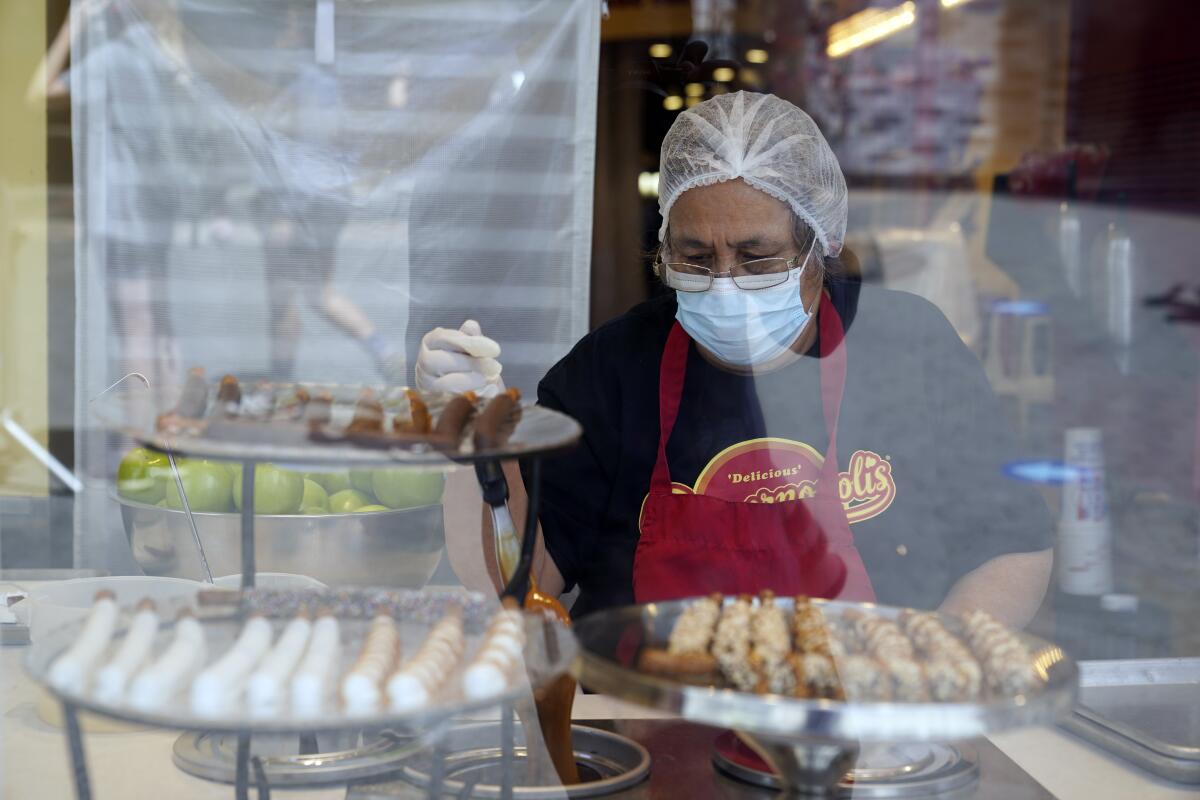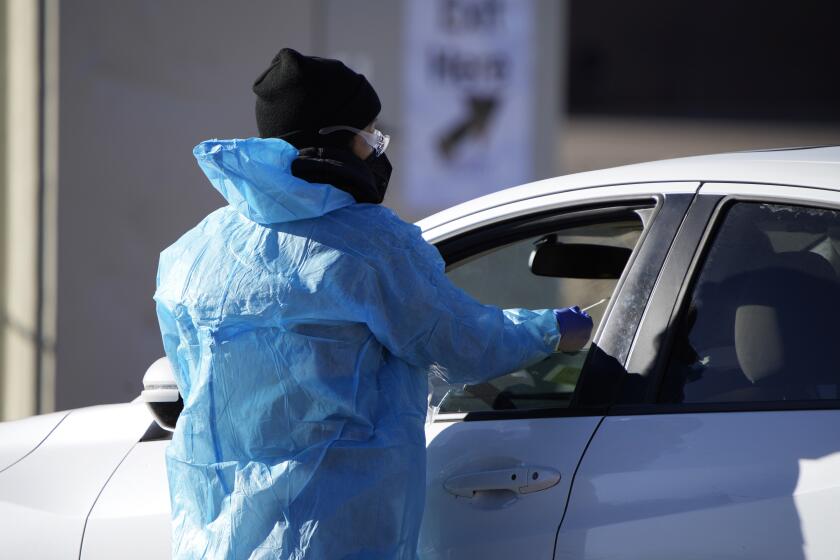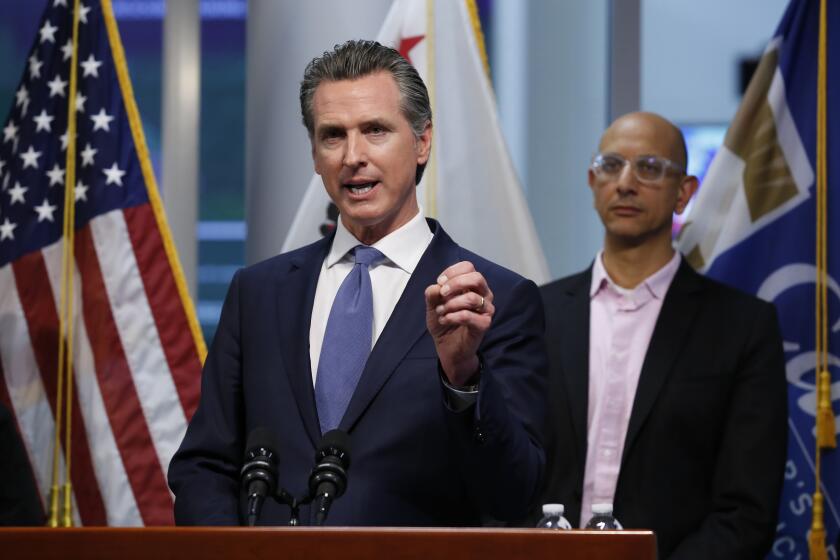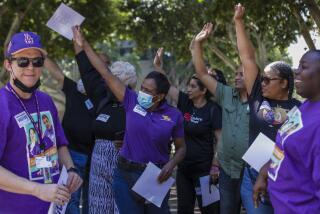California to end mandatory pay for workers who caught COVID on the job

- Share via
SACRAMENTO — California will stop making companies pay employees who can’t work because they caught the coronavirus while on the job.
For the last two years, California workplace regulators have tried to slow the spread of the coronavirus by requiring infected workers to stay home while also guaranteeing them they would still be paid.
But Thursday, the California Occupational Safety and Health Standards Board voted to end that rule in 2023 — in part because the policy has become harder to enforce.
Only people who caught the virus while at work are eligible to keep getting paid. But the coronavirus is now so widespread that it’s much harder to tell where someone got sick.
Plus, changes in quarantine rules mean most workers are not required to stay home once they’ve been exposed to the virus as long as they don’t have symptoms and don’t test positive for the disease.
Although the board approved the new rule by a 6-1 vote, many board members said they were disappointed the rule was changed. The new rules will last for two years because they are temporary regulations put in place in response to the pandemic.
Regulators will soon begin working on permanent rules, and several board members promised Thursday to make sure the permanent rules include a requirement for sick workers to keep getting paid.
Millions of workers whose jobs don’t provide paid sick days are having to choose between their health and their paycheck as the Omicron variant of COVID-19 spreads.
“We are now going to be telling workers they must be excluded from work if they are sick from workplace exposure but we are not requiring they will be paid. We all know this will lead to people needing to work while sick,” board member Laura Stock said. “I really want to ensure that we won’t make this mistake again.”
Workers who miss work because of the coronavirus can use sick leave. A state law, passed earlier this year, requires companies to give workers up to two weeks of paid time off if they get sick from the coronavirus. But that law expires this month, and it’s not clear if lawmakers will extend it in 2023.
Not all workers have sick leave, including low-wage workers in the service industry. Those employees can file for workers’ compensation benefits if they have to miss time because they have the coronavirus. But the process is arduous, and it’s no guarantee they will be approved.
“It doesn’t matter where the worker got the virus,” said Mitch Steiger, senior legislative advocate for the California Labor Federation. “To show up at work with it can then become a workplace outbreak.”
Gov. Gavin Newsom said the dramatic reductions in hospitalizations and deaths will allow him to end California’s COVID-19 state of emergency in February, three years after his initial declaration.
Although the rules about paying workers are changing, many other COVID-19 regulations are still in place.
The state still has rules about ventilation, testing and how to handle outbreaks. Companies are still required to notify employees if they have been exposed to the virus while at work, and they have to make free coronavirus tests available to workers who have come in close contact with someone else on the job who has been infected.
Business groups on Thursday urged the board to reject the rules, arguing there don’t need to be any coronavirus standards at all.
Democratic Gov. Gavin Newsom will end the state’s coronavirus emergency declaration in February and all of the executive orders that came with it. The Orange County Public Health Agency announced Thursday it was shifting its coronavirus response “from an emergency posture to routine business operations.”
“Now is the moment to end this,” said Rob Moutrie, policy advocate for the California Chamber of Commerce.
More to Read
Sign up for Essential California
The most important California stories and recommendations in your inbox every morning.
You may occasionally receive promotional content from the Los Angeles Times.












